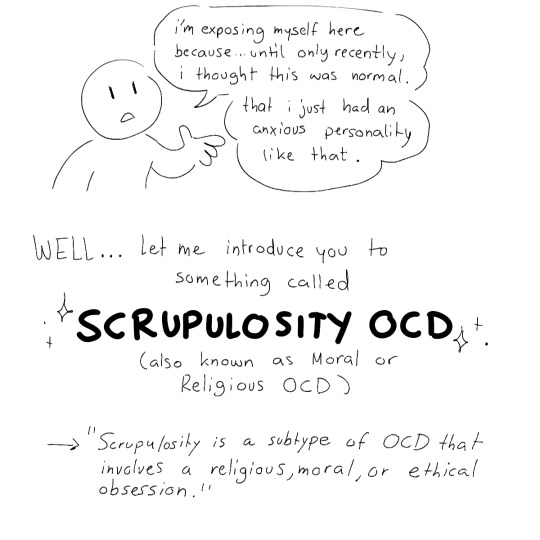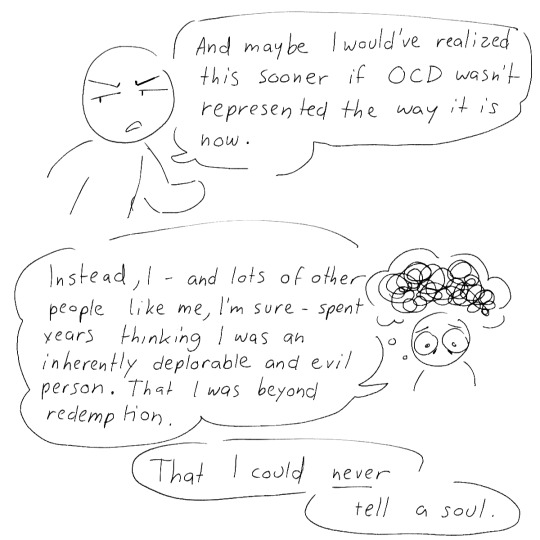#religious morality
Explore tagged Tumblr posts
Text

"If you want me to believe that teaching about God in schools would improve morality, you'll first need to explain why it doesn't seem to work in church."
🤔
62 notes
·
View notes
Text
The Ethical Quandary of Political Allegiances in Modern Evangelicalism

In the interconnection of faith and governance, the evangelical Christian community stands at a pivotal juncture, grappling with the implications of their deep-seated involvement in political affairs. Dr. Mark Williams' profound treatise, DECEIVED! The Poisoned Fruit of Evangelicalism, delves into this issue, articulating how the relentless pursuit of political influence has precipitated a significant erosion of moral and ethical standards within this faith-based cohort.
The book dissects the gradual paradigm shift within evangelical circles, from a primary focus on spiritual enlightenment and gospel dissemination to an overt preoccupation with legislative success. This evolution, as Dr. Williams illustrates, has not merely recalibrated the community's priorities but has starkly compromised its moral integrity. The dichotomy between the espoused religious convictions and the political machinations endorsed by evangelical leaders forms the crux of the analysis presented in DECEIVED!
Central to Dr. Williams’ critique is the exploration of the moral compromises that have become prevalent as evangelical leaders forge alliances with political figures whose policies and personal conduct often starkly contradict foundational Christian ethical norms. This alliance, predicated on a transactional approach to faith-based political engagement, presents a profound moral conundrum: Should the evangelical community continue to endorse leaders who promise to champion their causes at the expense of core Christian values?
DECEIVED! lays bare the consequences of these alliances, highlighting a pervasive moral dissonance within the evangelical community. This dissonance is manifested in the widespread acceptance of leaders who, while pledging to uphold certain Christian values such as the sanctity of life and marital fidelity, simultaneously flout other equally significant biblical teachings through their personal and professional conduct. This selective morality, Dr. Williams asserts, has not only diluted the evangelical message but has also significantly diminished the community's credibility and influence.
Furthermore, Dr. Williams challenges the evangelical community to introspectively reassess its engagement with the political sphere. He advocates for a reinvigoration of the gospel's quintessential teachings—compassion, humility, and love—as the guiding principles for political involvement. By realigning their political actions with these foundational precepts, evangelicals can begin to mend the rift between their political actions and spiritual convictions.
The ethical recalibration proposed by Dr. Williams necessitates a withdrawal from the pursuit of power for its own sake and a renewed commitment to the transformative power of the Gospel. This approach calls for evangelical Christians to embody the principles of their faith in every sphere of life, advocating for policies and leaders that truly reflect the teachings of Jesus Christ.
DECEIVED! The Poisoned Fruit of Evangelicalism serves not only as a critical examination of the current state of evangelical politics but also as a clarion call for substantive change. It is a compelling invitation for believers to reclaim the high ground of ethical integrity and to foster a more authentic manifestation of their faith in the public arena.
DECEIVED! The Poisoned Fruit of Evangelicalism is available for purchase on Amazon and can be further explored through Dr. Mark Williams' official platform. Readers are encouraged to utilize the Dr. Mark Williams app to access a wealth of additional resources, including music and book previews, and to avail themselves of a promotional discount on the purchase of DECEIVED! For more detailed information and to engage with the themes discussed, visit Dr. Williams' website. This book is an indispensable resource for anyone committed to understanding the moral complexities of evangelical engagement in modern society. https://stagingclientswebsites.com/wp3/
#church and state#faith in society#gospel influence#moral integrity#cultural criticism#religious morality#spiritual deception#faith and politics#articles
0 notes
Text






this is just a bunch of text and barely a comic sorry, but i really wanted to talk about this stuff even if i don't have the energy to properly draw
#myart#ocd#actually ocd#moral ocd#scrupulosity ocd#religious ocd#mental health#you can tell i got lazy towards the end i apologize lol#but yeah this has been on my mind ...#and the fact its so underrepresented / falsely represented is what pushed me to talk about it i suppose
13K notes
·
View notes
Text
Welcome to Wendel Lux's Worldly Wondering, a place where we'll explore the intersection of philosophy, spirituality, and the human experience. In this inaugural post, we'll be delving into the pitfalls of a leaning on a religious morality mentality. Is it possible that the very structures meant to guide us can actually hinder our growth and understanding of the world around us? Please, take a moment and ponder, as we unpack this complex topic and challenge ourselves to think beyond the confines of traditional beliefs.
A religious morality mentality can be comforting, providing a clear-cut set of guidelines for how to live one's life. However, it can also lead to a narrow and unnuanced worldview, where anything that doesn't conform to one's beliefs is seen as 'other' or even 'wrong.' This can create divisions, foster intolerance, and limit personal growth. Blindly adhering to a set of rules without questioning them can hinder one's ability to empathize with others and develop the critical thinking skills necessary to navigate our complex, ever-changing world. It's essential to find a balance between holding onto one's beliefs and being open to learning from diverse perspectives and experiences.
In a world that's constantly evolving, it's crucial to question our beliefs, empathize with those who are different, and strive for personal growth. This doesn't mean abandoning one's faith or values, but rather, being open to learning from diverse perspectives and experiences. As the poet Rumi said, 'Somewhere beyond right and wrong, there is a garden. I will meet you there.' Let's start a dialogue in the comments below, and let's wonder together.
#Religious morality#Narrow worldview#Personal growth#Empathy#Critical thinking#Diversity of thought#Open-mindedness#Religious perspectives#Spiritual beliefs#Faith and morality#Interfaith dialogue#Moral values#Ethics and religion#Spiritual growth
1 note
·
View note
Text
Religious Absolutism vs Religious Pluralism
I have a new benchmark by which I judge Religious and Spiritual Traditions.
If a religion, religious tradition, or spiritual tradition teaches/preaches Religious Absolutism* - then congratulations! This tradition is an organization that seeks to control and dominate humanity, and in my eyes these organizations are to be avoided at all costs.
*Religious Absolitism is the belief that all of humanity should follow only one religion. It is the idea that only one particular religion is considered true or valid, and asserts that all people should adhere to that specific faith.
For those who may have this objection; it doesn’t matter if you personally believe in Religious Absolutism. If you align with a religion that does, then you are supporting its beliefs and are just as guilty as the religious authorities you may or may not agree with.
As an example: The Catholic Church teaches that everyone on Earth should convert and become Catholic - and that this Religious Absolutism is the only way to achieve peace on Earth.
If you call yourself a Catholic, then you are vocalizing your alignment and support of the Catholic Church and its doctrine.
Don’t agree with Religious Absolutism? Don’t agree with what the Catholic Church teaches? Then don’t call yourself a Catholic!
Religions should exist as a choice - as one of many valuable ways to connect with the world, the cosmos, and divinity. I am a firm believer in Religious Pluralism* not only spiritually but morally and ethically.
*Religious Pluralism acknowledges the validity of multiple religious paths and promotes coexistence and mutual respect among different faith traditions.
Saying or believing that everyone should choose or be forced to “choose” the same religious or spiritual path is disgusting, controlling, and all around evil.
#thewitchfarhan#the witch Farhan#religious absolutism#religious pluralism#religious morality#textpost#spirituality#religion#religion vs spirituality
1 note
·
View note
Text
so i heard dino stamatopoulos is currently writing a script for a moral orel movie


guys im insane
#when i first heard that dino was considering making a moral orel movie i had so much happy jitters bro#i have only just gotten into moral orel fairly recently but this show already means so much to me#with the awful state the world is in right now i think i really needed a show like this especially as a queer person#i love u so much moral orel. i hope dino's idea gets approved#but also im more than happy with the script itself getting released online. new mo stuff is way better than nothing at all#moral orel#orel puppington#moral orel fanart#religious imagery#religious art#art#digital art#fan art#whatwouldoreldo#toby draws things
500 notes
·
View notes
Text

Sometimes a day makes you want a Starscream to bite and squeeze
#guess who got their final scores back ahaaa#class avg was 60 percent 😭#also I have blocked the transformers tag on TikTok that place is a hellhole#bit of a vent here but it’s so crazy#I was talking to a person I didn’t even follow a while back and we were making jokes like yeah the autobots ship megastar#on my fyp a couple days later and I see them reposting “shipping megastar is bad and gross’ like bruh what#I saw one of my followers commenting ‘yeah can’t believe it’s so popular’ I HAVE POSTED MEGASTAR BEFORE WHAT ARE YOU DOING HERE#I POSTED MY STARSCREAM AND MEGATRON FIGURES RAILING EACH OTHER#I only started posting cause I was like eh if it’s getting banned might as well#these people were poisoning my fyp smh#I’m convinced it’s just a moral superiority thing like all of those people who thought abo was so cringe and then someone was like#‘I secretly like abo’ and everyone agreed that they also like abo and it’s not that weird anymore#Ngl though. it is kinda sad but also kinda funny#sorry for the rant cause I talked about it before and I don’t want to keep on talking about it but those two baffled me#transformers#transformers fanart#megastar#megatron#starscream#transformers g1#megascream#maccadam#its like watching one of those religious couples where one of them is gay and theyre like 'I am working through my gay to be straight'
756 notes
·
View notes
Text
nobody:
me: *likes a post*
my ocd: was that post you liked actually good? what if that person is secretly bad and people find out and then you're a bad person by association because you liked their post? what if this post has secret dogwhistles that you don't know about? and by liking it that means you agree with it! reread it 30 times until all the words don't even seem like words anymore and the meaning is mush! what? you can't tell if it is a bad™ post? see, you actually are a bad person because a good person would be able to tell. you are going to hell now! you need to think at least 5 'good' things so you can counteract your eternal damnation!!! now now now now NOW NOW NOW!!!!
#tw intrusive thoughts#actually ocd#ocd#obsessive compulsive disorder#moral ocd#harm ocd#religious ocd#vent post#ocd vent
1K notes
·
View notes
Text

Prettiest eyes in the whole cartel💫
#my nachito😖#no because why is he so pretty#gimme a morally grey character with religious symbolism and I AM THERE AND SAT#nacho varga#ignacio varga#better call saul#breaking bad#michael mando
192 notes
·
View notes
Text
You're all fucking wrong about Catholic Jason he wouldn't feel guilt about Jack shit, ESPECIALLY not killing. He would get the All-Blades and be convinced that this is God's go ahead and divine confirmation that he's right about everything and all of his opinions are valid and everyone who opposes his worldview is a moron blinded by idealism and naivete.
#Jason should have a little bit of a god complex#there are lots of hints towards him being religious#the angel on his headstone his mother being named fucking Catholic a lot of his fire and brimstone beliefs#that whole timeline where he was a priest#but you guys seem to think there's only one way to be Catholic and interpret religious texts#you guys keep writing him like Helena but I am positive that they would disagree vehemently on a lot of things#I know we all want to project our religious guilt on our favorite blorbo but my boy doesn't give a shit#he has never felt guilt about anything because he believes that he is moral and right as much as Bruce and Cass believe they are#dc#jason todd#catholic jason todd#his mother is named Catherine**#I'm not retyping those tags
496 notes
·
View notes
Text

"If the only thing keeping you from being a horrible person is your religion, you are already a horrible person."
You're not "good," you're just obedient.
How is it that you have never figured out the best way not to be hurt by others is to not hurt others yourself? Even chimps figured that out.
148 notes
·
View notes
Text
Evangelicalism’s Dangerous Pursuit of Power

The evangelical movement in America has become inextricably linked with political activism, but at what cost? In DECEIVED! The Poisoned Fruit of Evangelicalism, Dr. Mark Williams explores how this shift from spiritual focus to political power has eroded the moral foundation of the Church.
Dr. William’s book paints a stark picture of how many evangelicals, driven by the desire to advance causes like pro-life advocacy and religious freedom, have abandoned the core teachings of Jesus. These causes, while seemingly noble, have been co-opted by political agendas that prioritize legislative victories over the genuine spiritual welfare of individuals. This manipulation of faith for political gain is at the heart of DECEIVED!
The author demonstrates how evangelical leaders have become deeply entrenched in the political sphere, often supporting candidates whose personal lives and policies contradict Christian values. Dr. Williams asks a critical question: how can believers, in good conscience, align themselves with politicians whose behavior is antithetical to the teachings of Jesus? Is the promise of political power worth sacrificing our spiritual integrity?
DECEIVED! exposes the reality that many well-meaning Christians have been misled into believing that their political activism is a form of service to God. However, Dr. Williams explains that these actions often lead us further from the message of Christ. Instead of focusing on compassion, forgiveness, and love—the very heart of the Gospel—Christians are distracted by the pursuit of power.
The book is not just an indictment of modern evangelicalism but also a call to return to the essence of Christian faith. Dr. Williams encourages readers to reassess their priorities and reflect on whether their political engagement is truly reflective of Jesus’ teachings. Is it possible to fight for moral causes without compromising one’s faith?
In answering these questions, Dr. Williams provides a compelling argument for a return to spiritual integrity. DECEIVED! encourages Christians to resist the temptation of power and refocus on what really matters: following Jesus’ example of love, service, and humility. This book is a must-read for anyone concerned about the direction of evangelicalism and its impact on both faith and politics.
DECEIVED! is now available for purchase on Amazon and at https://deceived.drmarkwill.com. To preview chapters from this transformative book and enjoy Dr. Mark Williams' inspiring music, download his app using the QR code below. Buy the book through the app to get a $5 discount on the retail price of DECEIVED! The Poisoned Fruit of Evangelicalism. https://stagingclientswebsites.com/wp3/
#church and state#faith in society#gospel influence#moral integrity#cultural criticism#religious morality#spiritual deception#faith and politics#blogs
0 notes
Note
im a really big fan of woke prince ali and his tungsten cube. what a life he must lead
Happy Ramadan to the human sacrifice demon baby and his Cube Chamber
#miraculous ladybug#mlb la terreur au#miraculous ladybug and chat noir#silu responds#ml prince ali#I’m fully making him an Al saoud btw Idgaf#I got questions about his parents religious status and how that intersect with him an abomination before the eyes of god#my answer is that they’re middle eastern oil billionaires#piety is a performance you do for moral superiority in your circle they don’t actually gaf
321 notes
·
View notes
Note
hey in ur peri animatic: (https://youtu.be/OCqlRuDaXYU?si=K52WDu_vw9rg7chz) that I have been permanently obsessed over since today and have watched about 20 times by now so much that I have drawn & posted stuff based on it what was that partial bug form peri had?

I haven’t watched either of the show btw so if it’s explained in the show please tell me plsssss
OK, SO the bug thing is not technically canon to the series. It's based on my own headcanons for fairy biology, but i do have justifications for it!! Fairies have very strong shape-shifting abilities, so it would make sense that the form they show to humans isn't necessarily their true form(not to mention extreme that mimicry is very common in insects). And you want to know the visible traits almost every fairy has in common? Being very small with Insect-like wings.
The fact that their humanoid form isn't their true form in actually confirmed in the show! Cosmo and Wanda are revealed to look like biblically accurate pseudo-angels in the museum episode. (I say pseudo angels because the Flaming Sword of Eden is only debatably sentient and I don't think is considered an angel. Ophanim are also debatably not angels because they don't have wings (sorry for the angel tangent I like angels))

So wouldn't their true forms be angelic then? Well, yes. But I like bugs so. Also I have more headcanons to justify myself. I like to think that they have both a true-true form (incomprehensible to the human brain, probably exists mostly in a dimension invisible to us, that looks how we imagine biblically accurate angels), and a fairy form (which is visible to humans but is naturally very insect like and tends to scare people). So, in order to interact with humans, they have to learn to shapeshift into a humanoid form but will occasionally slip if they get too relaxed/aren't careful, hence the mandibles coming out when he yawns!
The reason they struggle so much more with human forms than the animals or objects they typically turn into is that, well, they aren't trying to convince those animals or objects. The more human they try to look, the harder it is to keep up convincingly. If you turn into a really uncanny squirrel, only other squirrels will notice. If you turn into a really uncanny human, they form a lynch mob and burn you at the stake.
#fop#fairly oddparents#fairly oddparents a new wish#fop a new wish#headcanons#ok I think I said everything I wanted to#my brain has so many useless thoughts bouncing around in there#their bright colors would also imply that they are poisonous to eat#my personal theory is that Jorgen is half human idk how else to explain whatever he is. tall. no wings. that or he's something else entirel#maybe he's a higher rank of angel#fairies are definitely a type of angel in this world#but they don't seem to line up with any specific rank as far as I can tell#they behave most like I'd expect a Guardian angel to which could make Jorgen an Archangel or Principality#but Ophanims are in the first sphere of heaven which. uh I don't think it's right#to be clear I'm not even religious im just way too into angels#Uhhhh anyway I guess the moral of the story is that I did that just because I wanted to an because nobody could stop me#Actually Im just thinking about this now#I mostly drew baby poof without bug features to keep his design uncluttered visually#but fairies having naturally very human looking larva would explain how changelings happen#something something evolution. mutualism. those parasite birds. idk#ok im out of thoughts now seriously this time youre free now#speculative biology
288 notes
·
View notes
Text
Guess who is obsessed with moral orel that’s right it’s literally me. Who else’s would it be ho.
#moral orel#religion#religious trauma#adult swim#small fandoms#stop motion#funny#comedy#clay puppington#orel puppington#bloberta puppington#shapey puppington
181 notes
·
View notes
Text

jock lifestyle: 1
the inner self-loathing masochistic monk that lives in my brain and tells me what to do: …also 1?
#brother bartholomew the nafty#moral ocd#scrupulosity#ocd#religious ocd#intrusive thoughts#scrupulosity ocd
3K notes
·
View notes